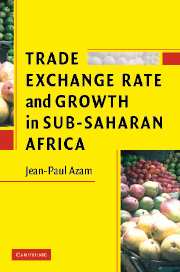Preface
Published online by Cambridge University Press: 26 May 2010
Summary
I went to Sub-Saharan Africa for the first time in 1985, as a visitor to the University of Abidjan. I had a good rapport with advanced students and young faculty there, and was struck by their passion for research in economics. Toward the end of my stay I gave a seminar on macroeconomics and presented a dynamic variant of IS-LM with rational expectations. They were very keen, and took in every word of my presentation, asking many pertinent questions: but my stay in Abidjan had been long enough to convince me that the type of macroeconomics that we do in Europe or the USA is almost completely useless for these countries. We take so much for granted when we model our economies: a labor market dominated by formal institutions, with resulting nominal wage sluggishness; a developed financial market with a well-defined interest rate; a democratic government, sensitive to electoral constraints, etc. We implicitly assume that the economy is well diversified, so that the terms of trade are relatively stable, and that the foreign exchange market is a large one, where anybody can buy or sell most of the currencies of the world. Most of these assumptions are unwarranted in many developing countries, and especially in Sub-Saharan Africa. I promised myself that I would devote my research to getting a better picture of the working of these economies.
- Type
- Chapter
- Information
- Trade, Exchange Rate, and Growth in Sub-Saharan Africa , pp. xi - xvPublisher: Cambridge University PressPrint publication year: 2006



